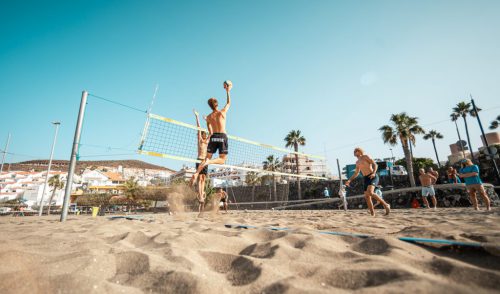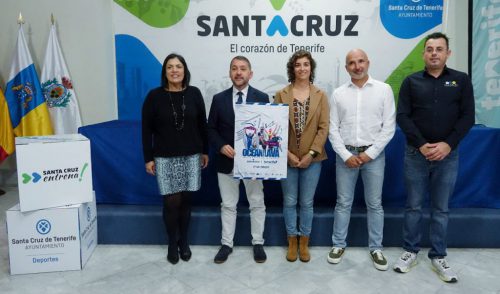French Market News – Week 18
- Tourism industry and Competitors news
While shops could gradually reopen from 11 May, hotels and restaurants will have to keep their curtains down for at least another three weeks.
Since the introduction of the lockdown on 16 March, hotels, restaurants, cafés, cinemas, theatres, concert halls and museums have had to close their doors. And unlike shops, which could reopen on 11 May, no date for a resumption has yet been communicated for hotels and restaurants, whose activity has fallen by 91% since the beginning of the crisis, according to INSEE. A reopening date could nevertheless be set in the coming weeks.
There will be a «final decision towards the end of May to have a reopening date for cafés, restaurants and bars,» Bruno Le Maire said Friday after a meeting at the Elysée Palace on the hotel, restaurant and tourism sector. However, the Minister of Economy warned against any «rush» running the risk of a second epidemic wave.
How destinations plan to (partly) reopen their beaches
Social distancing, beach passes, Plexiglas cabins… Different measures or projects are flourishing to allow access to the beaches despite the threat of the Covid-19.
French beaches are currently closed to the public. But what will happen from 11 May, when the time of deconfinement will have come, especially in the heart of summer? As we indicated yesterday, France is in the midst of reflection on the subject, starting with Jean-Baptiste Lemoyne, Secretary of State for Tourism at the Ministry of Europe and Foreign Affairs. Social distancing measures are not excluded, in order to avoid the spread of Covid-19 on the sand.
What is the situation in other countries of the world? In Spain, the rules of social distancing will remain in force this summer, warned the Minister of Tourism. In Australia, beaches are partially reopening, mainly to allow sports activities. Our colleagues from the Huffington Post have published an article pointing out other measures and projects around the world. Portugal could thus limit the number of people visiting the destination’s beaches, which are generally crowded in summer. «This virus does not hibernate in summer,» Portuguese Prime Minister Antonio Costa said. In Italy, the company Nuova Neon has come up with a concept that some will describe as original and others as far-fetched: small beach cabins designed with 4.5-metre-sided sheets of Plexiglas. In Belgium, in the city of Ostend, the mayor is considering introducing a «beach pass» to regulate the influx of holidaymakers. In the United States, despite the Covid-19, Florida reopened part of its beaches on 17 April, which were quickly taken by storm.
Echo touristique
In its latest opinion, the Scientific Council set up by the Government, pronounces the evolution of the situation and the recommendations in anticipation of the deconfinement of 11 May 2020. On Tuesday, Prime Minister Edouard Philippe will present these measures to Parliament. But here are already the opinions of the Scientific Council concerning travel and transport in France and abroad. This opinion concerns, it should be recalled, the strategy for the two months following the end of containment.
According to this body, for international transport, until the summer of 2020, the aim is to reduce the risk of reintroduction of the virus on national territory.
Such travel is strongly discouraged during the months following the period of release from containment.
Travellers expose themselves to a risk of quarantine upon arrival in the country of destination, to a risk of contamination during their stay and to the application of quarantine measures upon return to France.
This policy should be aimed particularly at persons coming from areas (EU or non-EU) with a high level of SARS-CoV-2 circulation, as well as from areas or countries (EU or non-EU) depending on the degree of strict health control at their borders.
Several intensities of controls can be considered, up to the systematic quarantine of persons coming from areas with a high level of SARS-CoV-2 circulation and/or without strict health controls at their borders.
Tourmag
- Aviation news
The consumer association UFC-Que Choisir has decided to issue formal notice to nearly 60 airlines that do not provide cash refunds for cancelled flights.Covid-19: Lufthansa massively restructures.
After the series of cancellations of air flights following the Covid-19 crisis, the companies, after having tried in vain to lobby for a change in the regulations, are now conducting a campaign of misinformation about how consumers can be reimbursed,» denounces the consumer association in a press release published on April 24. «Nearly 80% of the main airlines analysed are thus outlawed by denying passengers’ right to reimbursement and imposing a credit note. »
The UFC-Que Choisir assures to have «analyzed the reimbursement terms of 76 airlines which represent nearly 80% of the annual air passenger traffic». As a result, «only 23% of them respect their obligations and offer immediate reimbursement of cancelled tickets to passengers».
Tour Hebdo
Air France-KLM is to embark on restructuring as part of the airline’s restructuring. This is the announcement of Ben Smith, the group’s CEO, who does not expect a return to normal for another two years. The airline has received €7 billion in aid from France (and €2-4 billion from the Dutch government). The support to Air France consists of a €4 billion loan granted by a syndicate of six banks, 90% guaranteed by the State, and a €3 billion direct loan from the French State.
- Tour operators and travel agents news
Salaun Holidays initiative
In order that confinement can also rhyme with wonder at times, Salaün Holidays has decided to make its 12 travel films available to its tourist-traveling customers, in addition to its Salaünmags available for download on the www.salaun-holidays.com website. These are the same ones that the Tour operator shows during its annual film conference tour.
La quotidienne









